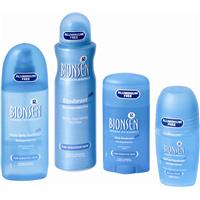![BubblyKitchenPowder [320x200].jpg](https://www.elixirnews.com/assets_c/2010/12/BubblyKitchenPowder%20[320x200]-thumb-220x200-421.jpg) Some of the ingredients in cleaning products can be as harmful to your family as the little bacterial beasties you are trying to banish.
Some of the ingredients in cleaning products can be as harmful to your family as the little bacterial beasties you are trying to banish.
Research has proven that high levels of toxins found in breast milk and blood can clearly be traced back to home cleaning products. If you have ever experienced your eyes, nose, head, skin or lungs feeling the effect of harsh chemical while you clean, it is definitely time to change to a safer and healthier alternative.
Two ranges of environmentally and family friendly household products have recently caught our attention;
Organic at heart
All Organic at Heart cleaning products are:
* made from 100% biodegradable formulas
* effective cleaning products
* 100% recyclable and/or decompostable
* full of gorgeous aromas to leave your home smelling great
* made with traditional ingredients eg vinegar and lemon
* free from toxic residues
* 100% safe with essential oils for family wellbeing
* environmentally aware and supporting ethical trade
Check out their new BUBBLY KITCHEN POWDER with sparkly organic orange. Containing absolutely no nasties and packed in a 100% decompostable waterproof bag, it’s a must for all healthy kitchens. Use it for washing up, surface cleaning, carpet freshening, deodorising and much more.
Method
Like Organic at Heart, Method use plant ingredients for their cleaning products. They have a full range of cleaning products for every eventuality and are passionate about the environment. Their philosophy means they are completely committed to happy and healthy lifestyles and sustainability. Their range includes;
* all purpose products
* speciality products for granite, wood, glass, steel and leather – the wood wipes and sprays are especially yummy and make your rooms smell of almond
* a full bathroom range including the super handy all-surface wipes which are flushable * There is also a full range for your clothes, body and precious items (your kids!)
Method products are available in most supermarkets, even B&Q (!); for more info check out their website

